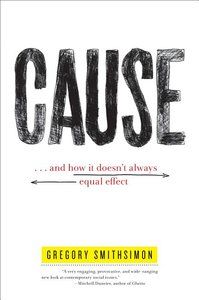
Health
Do Humans Need Each Other?
We like to think we can go it alone, but experience suggests otherwise.
Posted April 9, 2019

"I really don't know why I'm here. I like being by myself. I'm fine with it just being me, my cat, and no one else. Really."
I had the above conversation with a patient recently, but a version of it has been recurring in my practice. Withdrawal from all social contact can be a symptom of a variety of mental illnesses, but what counts as 'enough' social contact can vary wildly from person to person. As an extrovert married to an introvert I see this dynamic at play in my own marriage. Is this patient right, though? Are there some of us who are quite alright being entirely alone?
Gregory Smithsimon takes up this question among others in his Cause...and How It Doesn't Always Equal Effect. I believe Smithsimon is correct in tracing our conception of perfect self-sufficiency back to Daniel Defoe and his novel Robinson Crusoe, but in examining Defoe's sources he noticed something peculiar: Henry Pitman, the most likely model for Crusoe, was not actually alone at all. Rather, he was marooned on an island with thirteen other people. Those who are left alone for years tell a much different story.
According to the late John McCain, the worst part of the torture he endured in Vietnam was solitary confinement: "It's an awful thing, solitary. It crushes your spirit and weakens your resistance more effectively than any other form of mistreatment." Solitary confinement often brings on hallucinations, mood swings, and loss of impulse control, among other horrors. Having worked with several individuals who were incarcerated in solitary confinement for long periods, I can tell you that the symptoms don't go away once a person is released. At one time I saw a patient who had been out of prison for five years but still hid in his apartment anytime he heard police sirens. But these sort of struggles aren't limited to prisoners; research has shown that hospital patients confined to strict bed rest often begin to experience the same sort of troubles.

Technology is often praised for bringing us together, and to some degree this is true: I no longer have to wait until my high school reunion to find out how my former classmates are doing, I just have to pull up Facebook on my phone. Most of the advances of the past century, though, have actually driven us further apart. The phonograph made it so that music could be listened to alone rather than in a symphony hall. Air conditioning and window screens made it more pleasing to be indoors rather than out. Television and radio replace (at least to a degree) the movie theatre and the playhouse. Indeed, Smithsimon credits the invention of the car radio as one of the most important factors in the spread of the suburbs. Who could imagine commuting in silence for three hours? But, add music or other people talking, and suddenly you feel a little less alone. Our modern world was designed around the idea that humans prefer solitude, but more and more this notion appears to be incorrect.
So what does this mean for my patient? Of course I want to take her personality and preferences into account, and what looks like a proper social life to me may not be the same for her. My role as her therapist isn't to push her into anything that makes her feel uncomfortable, and clearly that is an issue at present. Beginning from the notion that we humans need others on a deep level, I can proceed with the knowledge that her statement doesn't line up with her needs and figure out why she came to believe differently and what we can do together to help her correct it.
Smithsimon has a larger point that he is making, though, and I believe it also deserves our attention. His book, of which this section on sociability is just a part, is devoted to the examination of how we come to embrace faulty causal narratives (e.g., the 9/11 hijackers attacked us because they hate our freedom) and the impact such narratives have upon our life and common discourse. We need other humans because, as inherently social creatures, we need to develop such stories communally. The rise of conspiracy theories, aided in large part by YouTube and social media, can perhaps be best understood from this perspective. Conspiracy theories are a poor man's way of building community by separating the world into those with secret knowledge and the masses without.
I'm writing this on a computer in my office while listening to an album recording in 1976, uploaded to the Internet decades later, streamed to my phone, and then transmitted via Bluetooth to my speaker. Technology can be a wonderful thing, indeed, but in many ways we are more isolated from each other than ever. Faced with the difficult task of sorting out the glut of misinformation from the truth, I have no easy answers, but I know where the solution starts: in talking to one another.

